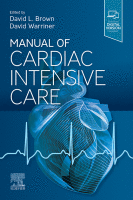Physical Address
304 North Cardinal St.
Dorchester Center, MA 02124

Common Misconceptions ■ A negative transthoracic echocardiogram excludes acute aortic dissection. ■ All patients, irrespective of risk, presenting with symptoms suggestive of aortic dissection, need urgent CT to rule out acute aortic dissection. ■ Coronary angiography must be performed on…

Common Misconceptions ■ Individuals with chronic hypertension are those most likely to develop a hypertensive emergency. ■ The goal of treatment of hypertensive emergency is to achieve normal blood pressure as soon as possible. ■ Nitroglycerin is a good choice…

Common Misconceptions ■ A wide pulse pressure is a hallmark of acute aortic regurgitation. ■ Inotropic agents are useful in acute aortic regurgitation. ■ A widened mediastinum is pathognomonic for acute aortic dissection. ■ In aortic stenosis, a softer murmur…

Common Misconceptions ■ Sinus tachycardia requires treatment to slow the heart rate. ■ Hemodynamic stability is useful in differentiating ventricular tachycardia from supraventricular tachycardia (SVT). ■ Adenosine is the first treatment of choice for hemodynamically stable SVT. You’re Reading a…

Common Misconceptions ■ A wide-complex tachycardia that is hemodynamically well tolerated is most likely to be supraventricular tachycardia. ■ It cannot hurt to give a stable patient with a wide-complex tachycardia adenosine or a calcium channel blocker to assess the…

Common Misconceptions ■ Survival following in-hospital cardiac arrest is significantly better than out-of-hospital cardiac arrest. ■ In aortic stenosis, the risk of sudden cardiac death is eliminated following aortic valve replacement. ■ In patients post-myocardial infarction (MI) with severe left…

Common Misconceptions ■ Diuretic therapy should be discontinued in patients with volume overload if they develop asymptomatic mild to moderate reductions in blood pressure or renal function. ■ Diuretic use in patients with volume overload can cause acute kidney injury…

Common Misconceptions ■ The presence of bystander coronary artery disease invalidates a diagnosis of stress cardiomyopathy. ■ Stress cardiomyopathy affects both sexes equally. ■ Uniformly a preceding trigger leads to stress cardiomyopathy. Presentation ■ Stress cardiomyopathy (SCM) is a generally…

Common Misconceptions ■ Myocarditis is a rare cause of acute nonischemic cardiomyopathy. ■ Corticosteroids are of benefit in mild to moderately severe acute myocarditis. ■ All patients with eosinophilic myocarditis will have a peripheral eosinophilia. Clinical Presentation ■ Myocarditis is…

Common Misconceptions ■ Acute decompensated heart failure (ADHF) typically presents with hypotension or shock. ■ The diagnosis of ADHF is made on the basis of imaging studies and natriuretic peptide levels. ■ ADHF is a single disease entity. ■ All…